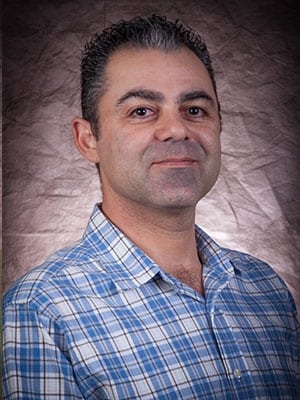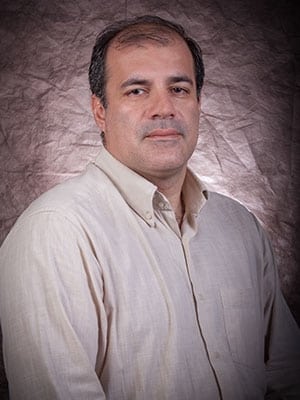Social Work (MSc, 3 Semesters) – E-Learning/Distance Learning (Online)
| Duration | 3 Semesters |
| Qualification Awarded | Master of Science in Social Work |
| Level of Qualification | Master Degree (2nd Cycle) |
| Language of Instruction | English or Greek |
| Mode of Study | E-Learning/Distance Learning (Online) |
| Minimum ECTS Credits | 90 |
Request Information
Profile of the Programme
The aim of the Programme is to acquire specialization in the modern approaches of Social Work at a theoretical and practical level. In particular, the knowledge they will acquire will enable them to more effectively practice the profession in public, non-governmental – voluntary and/or private social welfare organizations.
The main objective of the Programme is to develop a horizontal learning culture on social work issues both in Cyprus and in the European area. Students will be able to learn about modern social work theories and methods of assessment and intervention, current social policy, administration of social services as they operate at national and European level. At the same time, to explore the roles and principles of Social Work in a multidisciplinary context in the field of Health and Welfare.
This approach highlights the nature of Social Work, analyzes the way in which the different sectors and services are interrelated and interacting, and identifies issues that require particular attention in order to produce practical and applied knowledge in addressing current social problems and challenges for the discipline of social work.
Specific Objectives
The first specific objective of the Programme is to improve the efficiency and productivity of social workers and professionals working in the social welfare arena. The second specific goal is to understand social challenges posed by the rapid political, economic and social changes at European and global level.
Students will have the opportunity to study in depth challenges presented, to understand different models of prevention and coping with social crises and addressing new needs of service users, both at general and specific level. The Programme is structured in such a way as to gain an in-depth understanding in areas of particular interest.
Career Prospects
Through their attendance and successful completion of their studies, they offer increased opportunities for employment in governmental, non-governmental – voluntary and private organizations operating at a local, regional, national and European level, both at the general level of Social Welfare and in more specialized posts.
Access to Further Studies
Graduates of the postgraduate programme will also be able to undertake PhD studies in Social Work, Social Policy, Public Administration, or any other related area if they so wish. The design of the specific programme takes these perspectives into account, through the possibility of writing a dissertation.
By choosing the dissertation thesis, students will have the opportunity to work on a substantial part of a future research work and are expected to be placed in an advantageous position in their potential application to a PhD programme as opposed to graduates without a dissertation thesis experience.
University of Nicosia social work students also have the opportunity to expand their professional and academic network through the European Association of Social Work (EASSW) where the programme is part of the Executive committee of this organisation. Students can find out about new jobs all over Europe, conferences and training activities through the wide network of EASSW.
The minimum general requirement for admission to the post-graduate degree programme is a Bachelor Degree in Social Work from a recognised university.
In addition to the above, applicants must also satisfy the following requirements:
- A curriculum vitae, indicating your education, academic and professional experience, any publications, awards, etc.
- Copy of your first degree from a recognised university in Social Work or in any relevant subject. If your degree is not related to social sciences (educational sciences, economics, etc.), then you should complete the the course SOWK-500 Introduction to Social Work during the first semester of your studies. This is an introductory course to the science of Social Work, which is offered without any additional financial charges and it carries no ECTS/credits. Also, along with the introductory course, you are required to register for a specific compulsory course of the program.
- Copy of your transcript.
- Personal Statement: Short statement (approximately 2 pages) of personal goals and professional interests.
- Proof of voluntary or paid work in social welfare area (this is essential).
- Two (2) reference letters, one from an academic and one from a professional. In case you are not employed, you can provide two academic reference letters.
- English Language Proficiency Certificate
Students satisfy the English requirements if their first degree was taught in English. Otherwise, they would need to present a minimum TOEFL score 550 and above, or Computer-based TOEFL score of 213 and above, or Internet-based TOEFL (iBT) score 79-80 and above, or GCSE (or GCE) English Language “O” Level of “C” or above or IELTS of 6.5 and above or Cambridge Exams (First Certificate with Grade B and above, as well as Proficiency with Grade C and above or a score placement at the ENGL-100 level of the University English Placement Test. The University offers English courses at various levels to help students reach the required standard for admission to a graduate program.
Course assessment usually comprises of a comprehensive final exam and continuous assessment. Continuous assessment can include amongst others weekly interactive activities, projects, positive online forum participation etc.
Letter grades are calculated based on the weight of the final exam and the continuous assessment and the actual numerical marks obtained in these two assessment components. Based on the course grades the student’s semester grade point average (GPA) and cumulative point average (CPA) are calculated.
The student must complete 90 ECTS and all program requirements.
A minimum cumulative grade point average (CPA) of 2.0 is required. Thus, although a ‘D’ is a PASS grade, in order to achieve a CPA of 2.0 an average grade of ‘C’ is required.
Upon completion of the program the students are expected to be able to:
- Understand in-depth the concepts, theories and processes of social work that support the design and implementation of interventions in various social groups.
- They develop and formulate processes related to quality and equality in the provision of services to their organization’s employees.
- They recognize the ontological background of social theories, research and practice in the science of Social Work.
- Adopt practical skills related to planning, implementing and evaluating interventions on individuals, groups, communities and social organizations.
- They gain knowledge of research methods, their use and their applicability in exploring a wide range of organizational, community and social problems.
- They design and implement community programs aimed at promoting and developing social welfare.
- They analyze social policy and evaluate its implications and impact on service groups.
- Organize and manage effectively any kind of Social Service. Take leadership roles both in promoting social work and the profession of social worker, and in empowering / advocating social groups.
- Communicate successfully, collaborate and share information with other health and welfare professionals and organizations in identifying the need for change, implementing change strategies and effective program management.
Section A: Major Requirements
ECTS: Min.80 Max.80
| Course ID | Course Title | ECTS Credits |
|---|---|---|
| SOWK-510DE | Theory and Practice in Social Work for Adult Services | 10 |
| SOWK-511DE | Decision Making Process | 10 |
| SOWK-512DE | Social Research Methods | 10 |
| SOWK-520DE | Methods and Interventions for Children and Families | 10 |
| SOWK-521DE | Methods and Interventions for Groups | 10 |
| SOWK-522DE | Organisation and Management of Social Care Organisations | 10 |
| SOWK-590DE | Postgraduate Thesis | 20 |
Section B: Electives
ECTS: Min. 10 Max. 10
| Course ID | Course Title | ECTS Credits |
|---|---|---|
| SOWK-532DE | Community Programs Development and Fund Raising | 10 |
| SOWK-534DE | Promotion of Mental Health in Schools, Families and Communities | 10 |
Section C: Unallocated Courses
ECTS: Min. 0 Max. 0
Section: A – Κύρια Μαθήματα
Min. ECTS Credits: 80 Max. ECTS Credits: 80
| Course ID | Course Title | ECTS Credits |
|---|---|---|
| SOWK-510DL | Θεωρία και Πρακτική στις Υπηρεσίες Ενηλίκων | 10 |
| SOWK-511DL | Διαδικασίες Λήψης Αποφάσεων | 10 |
| SOWK-512DL | Μέθοδοι Κοινωνικής Έρευνας | 10 |
| SOWK-520DL | Μέθοδοι και Παρεμβάσεις σε Οικογένειες | 10 |
| SOWK-521DL | Μέθοδοι και Παρεμβάσεις σε Ομάδες | 10 |
| SOWK-522DL | Οργάνωση και Διοίκηση Κοινωνικών Οργανώσεων | 10 |
| SOWK-590DL | Μεταπτυχιακή Διατριβή | 20 |
Section: B – Επιλεγόμενα Μαθήματα
Min. ECTS Credits: 10 Max. ECTS Credits: 10
| Course ID | Course Title | ECTS Credits |
|---|---|---|
| SOWK-500DL | Eισαγωγή στην Κοινωνική Εργασία | 0 |
| SOWK-532DL | Ανάπτυξη Κοινοτικών Προγραμμάτων και Εξεύρεση Πόρων | 10 |
| SOWK-534DL | Προαγωγή Ψυχικής Υγείας στο Σχολείο, την Οικογένεια και την Κοινότητα | 10 |
Section: C Unallocated Courses
Min. ECTS Credits: 0 Max. ECTS Credits: 0
Semester 1
| Course ID | Course Title | ECTS Credits |
|---|---|---|
| SOWK-510DE | Theory and Practice in Social Work for Adult Services | 10 |
| SOWK-512DE | Social Research Methods | 10 |
| SOWK-520DE | Methods and Interventions for Children and Families | 10 |
Semester 2
| Course ID | Course Title | ECTS Credits |
|---|---|---|
| SOWK-511DE | Decision Making Process | 10 |
| SOWK-521DE | Methods and Interventions for Groups | 10 |
| SOWK-522DE | Organisation and Management of Social Care Organisations | 10 |
Semester 3
| Course ID | Course Title | ECTS Credits |
|---|---|---|
| SOWK-590DE | Postgraduate Thesis | 20 |
| SOWK-534DE | Promotion of Mental Health in Schools, Families and Communities | 10 |
Semester 1
| Course ID | Course Title | ECTS Credits |
|---|---|---|
| SOWK-510DL | Θεωρία και Πρακτική στις Υπηρεσίες Ενηλίκων | 10 |
| SOWK-512DL | Μέθοδοι Κοινωνικής Έρευνας | 10 |
| SOWK-520DL | Μέθοδοι και Παρεμβάσεις σε Οικογένειες | 10 |
Semester 2
| Course ID | Course Title | ECTS Credits |
|---|---|---|
| SOWK-511DL | Διαδικασίες Λήψης Αποφάσεων | 10 |
| SOWK-521DL | Μέθοδοι και Παρεμβάσεις σε Ομάδες | 10 |
| SOWK-522DL | Οργάνωση και Διοίκηση Κοινωνικών Οργανώσεων | 10 |
Semester 3
| Course ID | Course Title | ECTS Credits |
|---|---|---|
| SOWK-590DL | Μεταπτυχιακή Διατριβή | 20 |
| SOWK-534DL | Προαγωγή Ψυχικής Υγείας στο Σχολείο, την Οικογένεια και την Κοινότητα | 10 |





